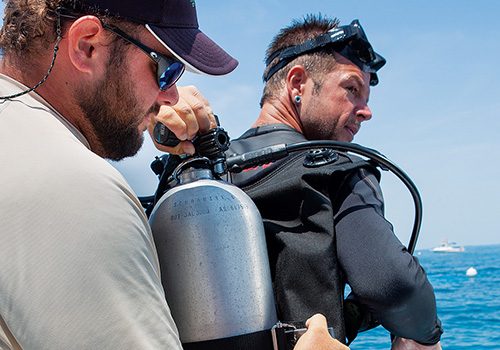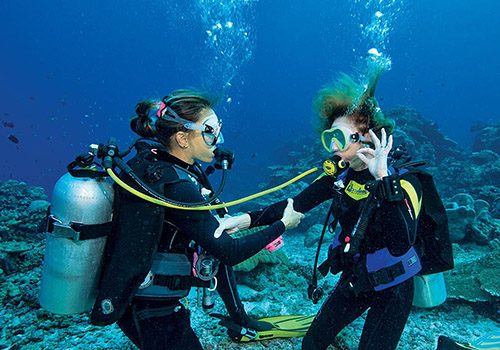Diving requires special skills learned during training and maintained through practice. “Use it or lose it” is especially true in diving. While skills will degrade somewhat with as little six months of inactivity, most dive educators and instructors consider inactivity of one to two years sufficient to warrant refresher training.
With longer periods, you’ll want to consider how much you have changed and what changes have taken place in the diving world. After a long hiatus, we highly recommend formal review of both your knowledge and in-water skills before you resume diving.
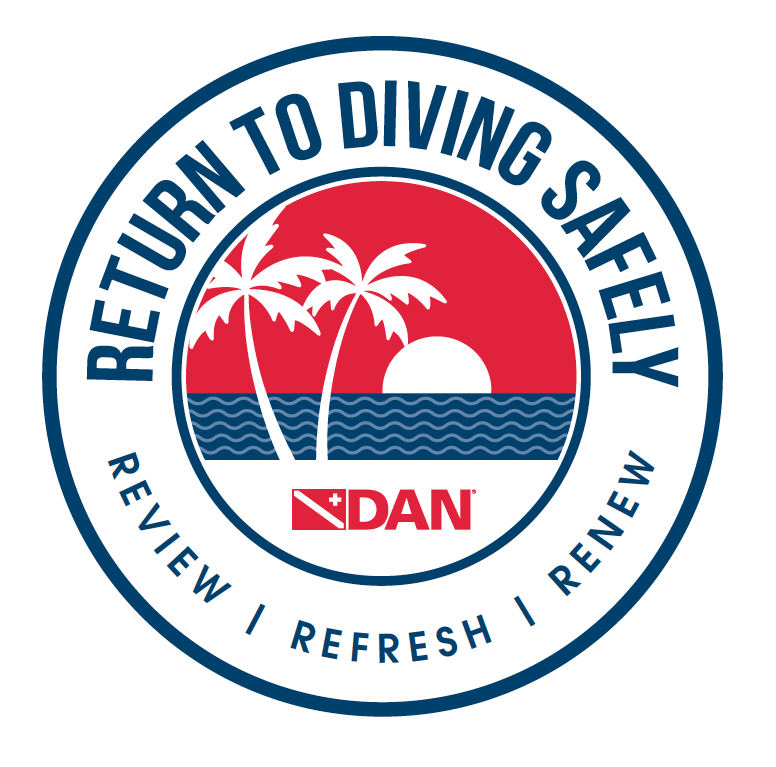
Evaluate Your Skills
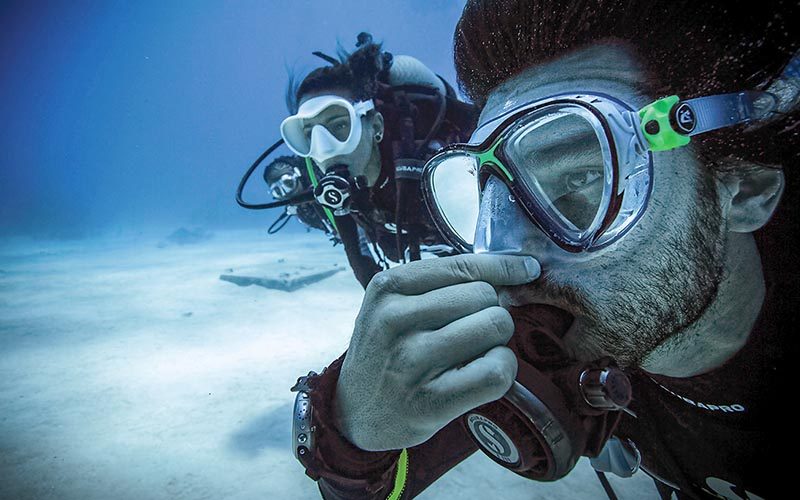
Practice Fundamentals
In your entry-level scuba course, you learned fundamental skills intended to promoted your safety and teach you how to deal with various problems that can arise during dives. To remain proficient in these skills, you must practice them. This is even more important if you are a relatively inexperienced diver. Most instructors and training agencies recommend a refresher course after a year of not diving.

Refresh In-Water Skills
If you have been out of the water for a prolonged period, consider retaking the entry-level course. You never know what you may have forgotten or missed in your original course. When undertaking refresher training, DAN highly recommends both the classroom portion (which includes basic dive physics and physiology as well as dive planning and execution using dive tables and computers) and the in-water skills portion.
Prepare, Educate and Practice
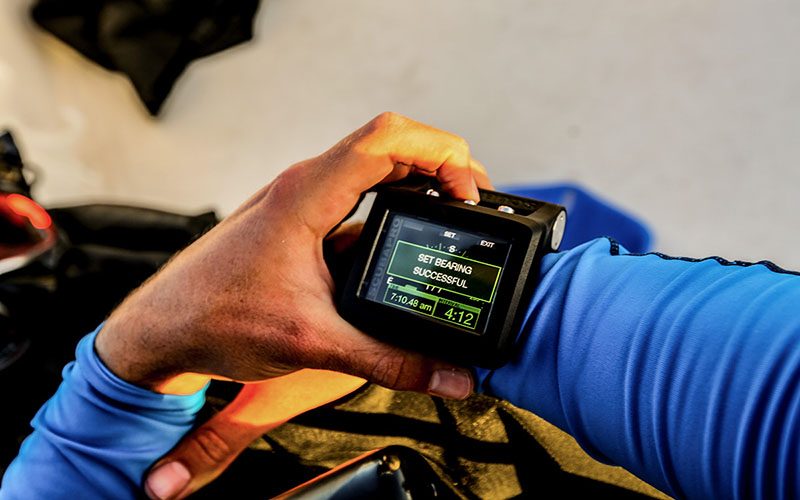
The classroom portion of refresher training generally covers:
- Dive planning
- Use of dive tables and computers
- Other knowledge and theory per your training agency’s standards
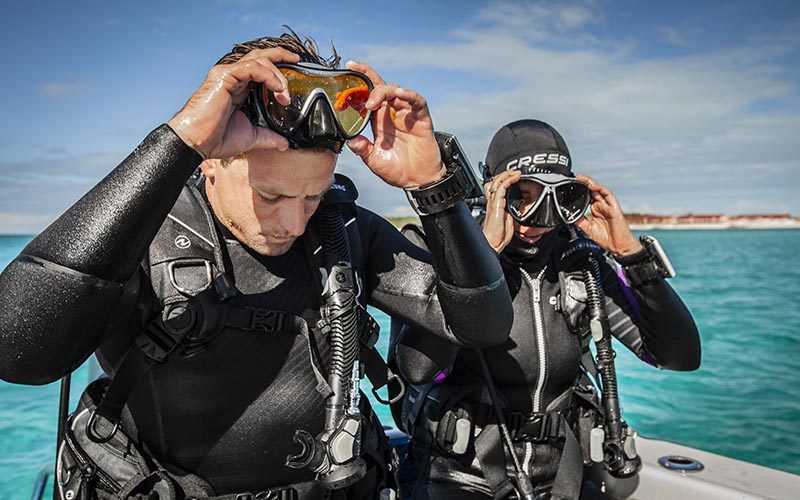
For your first dive after a period of inactivity:
- Do not dive alone. Consider diving with a divemaster or instructor
- Dive at a familiar site
- Shallow
- Minimal or no currents
- No major hazards
- Choose a site that is not remote
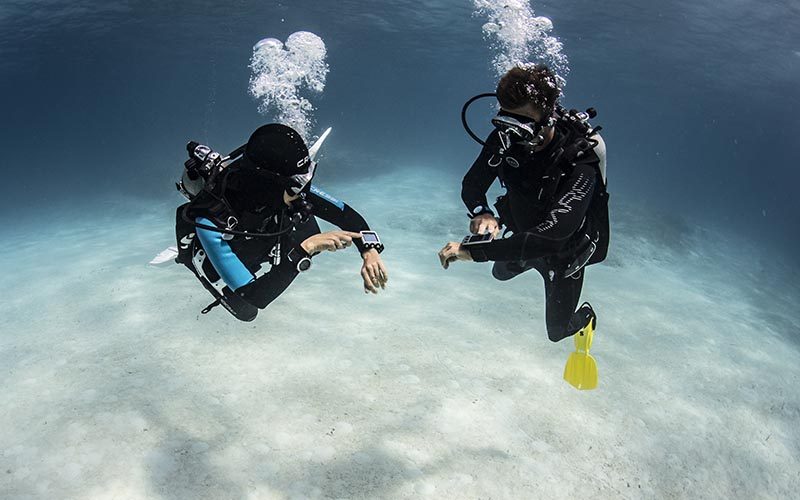
Practice your skills in confined water before you dive in open water. Good skills to practice include:
- Predive checks
- Buoyancy checks (proper weighting)
- Buoyancy
- Mask clearing
- Mask removal and replacement
- Recovering and clearing your regulator
- Shared air ascent
- Emergency swimming ascent or controlled emergency swimming ascent (depending on what your training agency teaches)
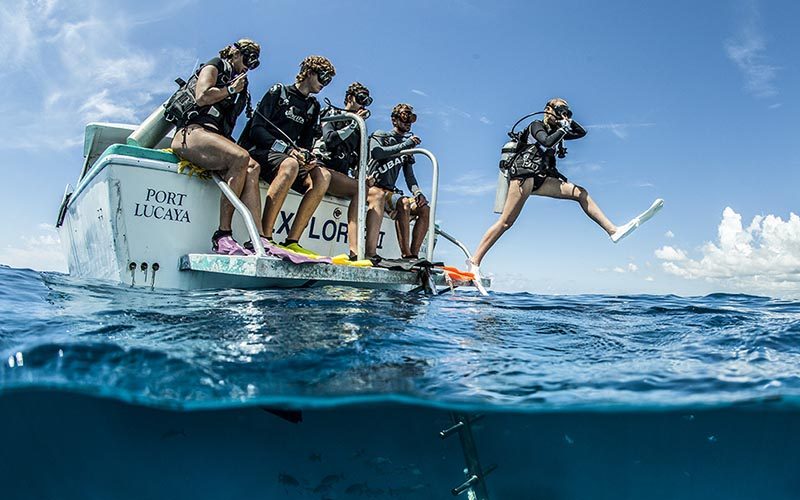
Take a continuing education course at the level recommended by your training agency.
Additional Dive Skill Resources
DAN Customer Service
Mon–Fri, 8:30 a.m. – 5 p.m. ET
+1 (919) 684-2948
+1 (800) 446-2671
Fax: +1 (919) 490-6630
24/7 Emergency Hotline
In the event of a dive accident or injury, call local EMS first, then call DAN.
24/7 Emergency Hotline:
+1 (919) 684-9111
(Collect calls accepted)
DAN must arrange transportation for covered emergency medical evacuation fees to be paid.
Medical Information Line
Get answers to your nonemergency health and diving questions.
Mon–Fri, 8:30 a.m. – 5 p.m. ET
+1 (919) 684-2948, Option 4
Online: Ask A Medic
(Allow 24-48 hours for a response.)
